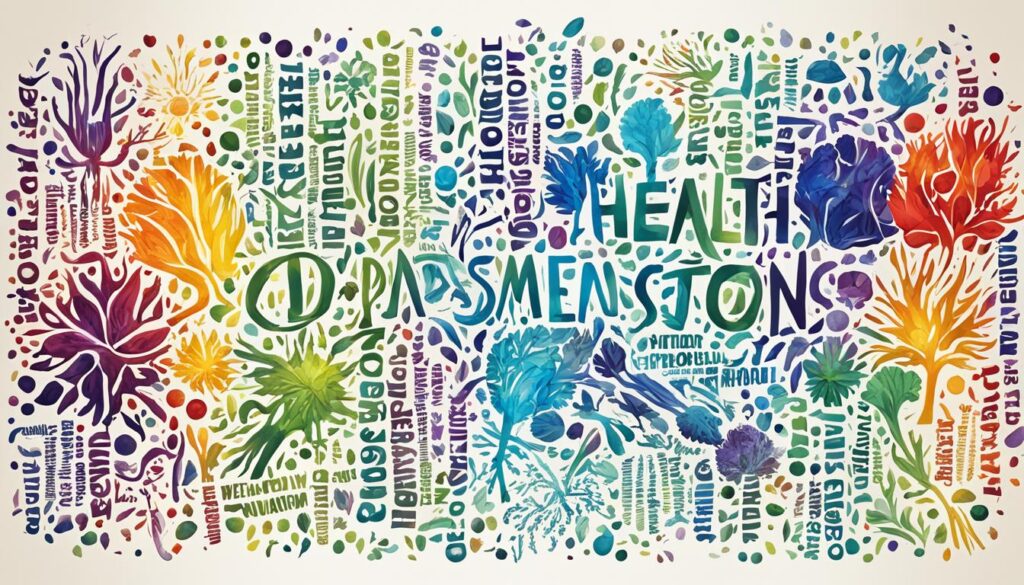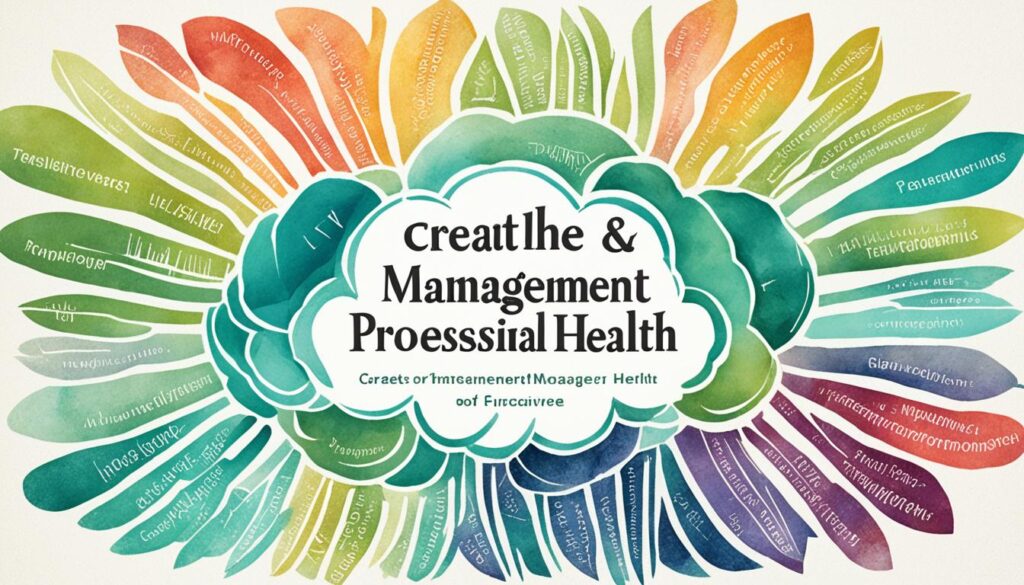This comprehensive guide, “Mind Matters: A Comprehensive Guide To Mental Health Diseases”, explores the various types of mental health disorders, their prevalence, causes, symptoms, diagnosis, treatment, and management. It provides insights into common mental health conditions such as anxiety, depression, bipolar disorder, schizophrenia, post-traumatic stress disorder (PTSD), and obsessive-compulsive disorder (OCD), among others. The guide aims to educate readers on the complexities of mental health, debunk myths, and empower individuals to seek help and manage their mental well-being. By delving into the latest research and real-life experiences, this guide offers a practical and empowering approach to understanding and addressing mental health diseases.
Key Takeaways
- This guide explores a wide range of mental health disorders, including their causes, symptoms, and impact on well-being.
- It provides insights into common mental health conditions such as anxiety, depression, bipolar disorder, and schizophrenia.
- The guide aims to educate readers, debunk myths, and empower individuals to seek help and manage their mental health.
- By using the latest research and real-life experiences, the guide offers a practical and empowering approach to understanding and addressing mental health diseases.
- The guide covers the complexities of mental health, including prevalence, diagnosis, treatment, and management strategies.
Understanding Mental Health Disorders
Mental health disorders are complex conditions that can significantly impact a person’s thoughts, emotions, and behaviors, often leading to difficulties in daily functioning. These disorders, which are also referred to as mental illnesses, can range in severity and encompass a wide range of conditions, from anxiety and depression to psychotic disorders and personality disorders.
What Are Mental Health Disorders?
Mental health disorders are characterized by persistent changes in an individual’s cognitive, emotional, and behavioral patterns that deviate from what is considered normal or expected. These conditions can affect a person’s ability to think, feel, and interact with others, making it challenging to lead a fulfilling and productive life.
Prevalence and Impact of Mental Illness
Mental health disorders are surprisingly common, with 1 in 5 adults in the United States experiencing a mental illness each year. The impact of these conditions can be far-reaching, affecting an individual’s physical health, relationships, education, and employment. Mental health disorders can also contribute to the development of other health problems, such as chronic illnesses, and in severe cases, can lead to disability or even premature death.
Causes and Risk Factors
The causes of mental health disorders are multifaceted, with a complex interplay of biological, psychological, and social factors. Genetic predisposition, traumatic experiences, chronic stress, substance abuse, and underlying medical conditions can all contribute to the development of mental health issues. Understanding the various risk factors associated with mental health disorders is crucial for prevention and early intervention strategies.
| Biological Factors | Psychological Factors | Social Factors |
|---|---|---|
| Genetics, brain chemistry, chemical imbalances | Trauma, stress, substance abuse, chronic illness | Socioeconomic status, living conditions, social connections |
By understanding the fundamental nature of mental health disorders, their prevalence, and the various factors that contribute to their development, individuals and healthcare providers can better identify, address, and manage these conditions, ultimately improving overall well-being and quality of life.
Types of Mental Health Disorders

Mental health disorders come in various forms, each with its own unique set of symptoms, behaviors, thoughts, and emotions. Understanding the different types of mental health disorders is crucial for recognizing the signs and seeking appropriate treatment. In this section, we’ll explore the major categories of mental health disorders, including anxiety disorders, mood disorders, psychotic disorders, eating disorders, and personality disorders.
Anxiety Disorders
Anxiety disorders are characterized by excessive fear, worry, and panic. These conditions can manifest in various ways, such as phobias, generalized anxiety disorder, obsessive-compulsive disorder (OCD), and post-traumatic stress disorder (PTSD). Individuals with anxiety disorders may experience physical symptoms like rapid heartbeat, sweating, and trembling, as well as psychological symptoms like intrusive thoughts, irrational fears, and difficulty concentrating.
Mood Disorders
Mood disorders, such as depression and bipolar disorder, involve persistent changes in an individual’s mood, energy levels, and thought patterns. Depression is marked by feelings of sadness, hopelessness, and a lack of motivation, while bipolar disorder is characterized by extreme mood swings, including manic episodes of elevated mood and energy, followed by depressive episodes.
Psychotic Disorders
Psychotic disorders, like schizophrenia, are characterized by a loss of touch with reality. Individuals with psychotic disorders may experience delusions, hallucinations, disorganized thinking and speech, and impaired cognitive functioning. These symptoms can significantly impact an individual’s ability to function in day-to-day life.
Eating Disorders
Eating disorders, such as anorexia nervosa and bulimia nervosa, involve distorted perceptions of body image and unhealthy behaviors related to food intake and weight management. Individuals with eating disorders may engage in restrictive eating, binge-purge cycles, or excessive exercise, often leading to physical and emotional distress.
Personality Disorders
Personality disorders, like borderline personality disorder and narcissistic personality disorder, involve persistent patterns of thoughts, emotions, and behaviors that deviate from societal norms and can significantly impact an individual’s relationships and daily functioning. Individuals with personality disorders may exhibit difficulties with emotional regulation, interpersonal relationships, and self-perception.
By understanding the diverse range of mental health disorders, individuals can better recognize the signs and symptoms, seek appropriate support, and work towards managing their mental health effectively.
Mental Health Diseases

This section delves deeper into the specific mental health diseases, providing a comprehensive overview of the most common and impactful conditions. From depression to obsessive-compulsive disorder, each disorder is examined in detail, highlighting the unique symptoms, causes, and available treatments that individuals may encounter.
Depression
Depression is a mood disorder characterized by persistent feelings of sadness, hopelessness, and a lack of motivation. Individuals struggling with depression may experience changes in sleep, appetite, and energy levels, as well as difficulty concentrating and making decisions. This mental health disease can have a significant impact on an individual’s daily functioning and overall quality of life.
Bipolar Disorder
Bipolar disorder is a complex mental health condition marked by extreme shifts in mood, energy, and thought patterns. Individuals with bipolar disorder experience episodes of mania, characterized by elevated mood, increased activity, and impulsive behavior, as well as episodes of depression, which can be just as debilitating as the manic phases. Managing the fluctuations in mood and energy levels is a key challenge for those living with bipolar disorder.
Schizophrenia
Schizophrenia is a severe psychotic disorder that affects an individual’s perception of reality. Symptoms of schizophrenia may include hallucinations, delusions, disorganized speech and behavior, and cognitive impairments. The onset of schizophrenia typically occurs in early adulthood and can have a profound impact on an individual’s ability to function in daily life.
Post-Traumatic Stress Disorder (PTSD)
Post-Traumatic Stress Disorder (PTSD) is a mental health condition that can develop after experiencing a traumatic event, such as a natural disaster, a violent crime, or military combat. Individuals with PTSD may experience intrusive thoughts, flashbacks, nightmares, and heightened arousal, which can significantly disrupt their daily lives and interpersonal relationships.
Obsessive-Compulsive Disorder (OCD)
Obsessive-Compulsive Disorder (OCD) is a mental health condition characterized by intrusive thoughts, obsessions, and repetitive behaviors or compulsions. Individuals with OCD may engage in rituals or compulsions in an attempt to alleviate their anxiety or distress, but these behaviors can become debilitating and interfere with their daily functioning.
For each of these mental health diseases, the guide outlines the specific symptoms, causes, and available treatments, including therapy and medication, as well as effective coping strategies. By understanding the complexities of these conditions, individuals can work with mental health professionals to develop personalized plans for managing their mental health and improving their overall well-being.
Symptoms and Diagnosis

Understanding the common signs and symptoms, as well as the diagnostic process, is crucial for identifying and addressing mental health disorders. This section delves into the various manifestations of mental illness and the methods used by mental health professionals to assess and diagnose these conditions.
Common Signs and Symptoms
Mental health disorders can present a wide range of symptoms that can affect an individual’s behavior, mood, cognition, and physical well-being. Some of the common signs and symptoms include changes in mood, such as persistent feelings of sadness, anxiety, or euphoria; alterations in thought patterns, including delusions or hallucinations; and disruptions in daily functioning, such as difficulty concentrating, lack of motivation, or social withdrawal. Additionally, physical symptoms, such as changes in appetite, sleep patterns, or energy levels, may also indicate the presence of a mental health condition.
Screening and Assessment
The diagnostic process often begins with screening and assessment, which involves a combination of self-reporting, clinical interviews, and medical examinations. Individuals may be asked to complete self-assessment questionnaires or participate in structured interviews with mental health professionals, such as psychologists or psychiatrists. These assessments help to gather information about the individual’s symptoms, emotional and psychological state, and overall functioning. Additionally, healthcare providers may conduct physical exams and order standardized tests, such as cognitive or neuropsychological assessments, to rule out any underlying physical causes and gather a comprehensive understanding of the individual’s condition.
Diagnostic Criteria
Mental health disorders are classified and diagnosed based on the criteria outlined in the Diagnostic and Statistical Manual of Mental Disorders (DSM) and the International Classification of Diseases (ICD), which are the primary references used by mental health professionals. These diagnostic manuals provide detailed descriptions of the symptoms, duration, and severity required for a specific mental health disorder to be identified. By adhering to these standardized diagnostic criteria, mental health professionals can ensure a more accurate and consistent approach to assessment and treatment planning.
| Diagnostic Criteria | Examples |
|---|---|
| Diagnostic and Statistical Manual of Mental Disorders (DSM) | The DSM provides comprehensive diagnostic criteria for a wide range of mental health disorders, including depression, anxiety, schizophrenia, and personality disorders. |
| International Classification of Diseases (ICD) | The ICD is another widely used diagnostic manual that covers mental and behavioral disorders, with detailed guidelines for assessment and classification. |
By understanding the common signs and symptoms of mental health disorders, as well as the screening, assessment, and diagnostic criteria used by mental health professionals, individuals can be better equipped to seek appropriate support and treatment for their mental health concerns.
Treatment and Management

When it comes to addressing mental health disorders, a comprehensive approach involving various treatment and management options is often the most effective path forward. This section explores the key elements of this multifaceted strategy, from psychotherapy and medication to lifestyle changes and self-care practices.
Psychotherapy
Psychotherapy, or talk therapy, plays a crucial role in the treatment of mental health disorders. Evidence-based approaches, such as cognitive-behavioral therapy (CBT), dialectical behavior therapy (DBT), and interpersonal therapy, can help individuals develop coping skills, manage troubling symptoms, and improve their overall well-being. These therapies empower individuals to understand the root causes of their mental health issues, challenge negative thought patterns, and adopt healthier behaviors and emotional responses.
Medication
Medication can also be an essential component of mental health treatment, particularly for addressing the underlying biological and chemical imbalances that may contribute to certain mental health conditions. Antidepressants, antipsychotics, mood stabilizers, and anxiolytics are some of the common classes of medications used to alleviate symptoms and stabilize mood in individuals struggling with mental health disorders. When used in conjunction with psychotherapy and other support systems, medication can play a vital role in the comprehensive management of mental health concerns.
Lifestyle Changes and Self-Care
Alongside professional treatment, individuals can also take proactive steps to manage their mental health through lifestyle changes and self-care practices. Regular exercise, a balanced and nutrient-rich diet, adequate sleep, stress management techniques (such as mindfulness and relaxation exercises), and the cultivation of strong social support systems can all contribute to the management and recovery of mental health issues. By prioritizing these self-care strategies, individuals can take an active role in their mental health journey and complement the professional support they receive.
By understanding and exploring the diverse range of treatment and management options available, individuals can work closely with mental health professionals to develop a personalized plan that addresses their unique needs and supports their overall well-being.
Coping Strategies and Support

Navigating mental health disorders can be a challenging journey, but developing effective coping strategies and accessing supportive resources can significantly improve one’s well-being and resilience. This section delves into the importance of building resilience, leveraging support groups and professional resources, and overcoming the stigma surrounding mental health.
Building Resilience
Resilience is the ability to adapt and thrive in the face of adversity, and it is a crucial component of mental health recovery. By cultivating healthy coping mechanisms, individuals can learn to manage stress, regulate emotions, and maintain a positive outlook. This may involve practicing self-care through mindfulness techniques, such as meditation or deep breathing exercises, as well as engaging in physical activities, maintaining a balanced diet, and getting adequate sleep. Additionally, developing strong social connections and seeking support from loved ones can enhance one’s resilience and overall mental well-being.
Support Groups and Resources
Connecting with others who share similar experiences can be immensely beneficial for individuals dealing with mental health disorders. Support groups, both in-person and online, can provide a safe and supportive environment for sharing experiences, gaining insights, and learning from one another. These groups often offer peer support, coping strategies, and information on local and national resources, such as counseling services, therapy programs, and mental health hotlines. Seeking professional help from licensed therapists, counselors, or mental health specialists can also be invaluable in developing personalized treatment plans and accessing evidence-based therapies.
Overcoming Stigma
Stigma surrounding mental health disorders remains a significant barrier to seeking help and accessing support. However, through education, advocacy, and community efforts, individuals and organizations can work to reduce the negative perceptions and misconceptions that often accompany mental health challenges. By speaking openly about mental health, challenging stereotypes, and promoting inclusive practices, we can create a more understanding and compassionate society that empowers individuals to prioritize their mental well-being and seek the help they need without fear of judgment or discrimination.
By embracing coping strategies, leveraging support systems, and actively addressing the stigma surrounding mental health, individuals can take an active role in their mental health recovery and overall well-being. This holistic approach empowers individuals to navigate the complexities of mental health disorders with resilience, empathy, and a renewed sense of hope.
Prevention and Early Intervention

Addressing mental health disorders requires a proactive approach that prioritizes prevention and early intervention. By understanding the factors that contribute to the development of mental illness, we can take steps to mitigate risks and promote overall mental well-being.
Risk Factors and Protective Factors
Mental health disorders can be influenced by a variety of risk factors, including genetics, trauma, stress, substance abuse, and chronic illness. However, there are also protective factors that can help individuals and communities build resilience and safeguard their mental health. These include the adoption of healthy habits, the cultivation of strong social connections, and access to education and community resources.
Mental Health Promotion
Effective mental health promotion efforts aim to raise awareness, reduce stigma, and provide individuals with the tools and resources they need to maintain good mental health. This can involve targeted education campaigns, community-based programs, and the integration of mental health support into various settings, such as schools, workplaces, and healthcare systems.
Early Intervention Programs
Early intervention programs play a crucial role in addressing mental health concerns before they escalate. These programs focus on identifying and addressing mental health issues in the early stages, allowing for timely intervention and the implementation of appropriate treatment and support. By reducing the severity of symptoms and improving long-term outcomes, early intervention programs can have a significant impact on individual and community well-being.
By prioritizing prevention and early intervention, we can take proactive steps to support mental health and reduce the burden of mental health disorders. Through the combined efforts of individuals, communities, and healthcare systems, we can create a more resilient and mentally healthy society.
Special Populations and Considerations

When it comes to mental health, certain populations face unique challenges and require tailored approaches. This section delves into the specific needs and considerations for children, adolescents, older adults, and individuals from diverse cultural and ethnic backgrounds.
Mental Health in Children and Adolescents
The mental health of children and adolescents is a critical concern, as this stage of life is marked by significant developmental stages, cognitive changes, and emotional regulation challenges. Addressing the unique needs of this population requires a deep understanding of their evolving social, emotional, and cognitive capacities. Early intervention, access to age-appropriate support systems, and fostering healthy emotional regulation can play a crucial role in promoting positive mental health outcomes for children and adolescents.
Mental Health and Aging
As individuals age, they may face a range of mental health concerns, including cognitive changes, emotional shifts, and the impact of chronic health conditions. Older adults often require specialized support systems, including caregiver support and access to mental health resources tailored to their developmental stage. Recognizing the importance of maintaining cognitive and emotional well-being in later life can help ensure a more holistic approach to mental health and aging.
Cultural and Ethnic Diversity
Mental health experiences are profoundly shaped by cultural and ethnic diversity. Factors such as stigma, access to culturally responsive care, cultural beliefs, socioeconomic status, trauma, and discrimination can all influence mental health outcomes. By adopting inclusive practices and developing a deeper understanding of diverse perspectives, mental health professionals can provide more effective and culturally sensitive treatment, addressing the unique needs of individuals from various backgrounds.
The Impact of Mental Health on Overall Well-being
Mental health is a crucial component of an individual’s overall well-being, with far-reaching implications that extend beyond just emotional and psychological aspects. This section explores the profound impact of mental health on an individual’s physical health, personal relationships, and work productivity, underscoring the need for a comprehensive and holistic approach to addressing mental health concerns.
Mental Health and Physical Health
The link between mental health and physical health is a well-established phenomenon. Conditions like depression, anxiety, and chronic stress can contribute to the development or exacerbation of various physical ailments, including cardiovascular disease, chronic pain, and weakened immune function. Conversely, physical health issues can also take a toll on an individual’s mental well-being, leading to increased feelings of anxiety, depression, and a diminished sense of overall well-being. By recognizing this bidirectional relationship, individuals can take proactive steps to prioritize both their mental and physical health, engaging in self-care practices such as regular exercise, a balanced diet, and stress management techniques.
Mental Health and Relationships
Mental health disorders can also have a significant impact on an individual’s personal relationships. Mental health issues can create challenges in maintaining healthy emotional connections, as they can lead to difficulties in communication, emotional regulation, and empathy. However, strong social support systems and healthy relationships can also serve as powerful protective factors, promoting resilience and aiding in the management of mental health concerns. By fostering open dialogues, seeking professional help when needed, and building a supportive network, individuals can navigate the complexities of maintaining meaningful relationships while managing their mental health.
Mental Health and Work/Productivity
The influence of mental health extends to the workplace, affecting an individual’s job performance, productivity, and overall work-life balance. Factors such as stress, anxiety, and mood disorders can lead to cognitive impairments, decreased motivation, and increased absenteeism or presenteeism, ultimately impacting an individual’s ability to thrive in their professional environment. Conversely, a supportive work culture that prioritizes mental health and well-being can foster increased job satisfaction, improved work-life balance, and enhanced productivity. By addressing mental health concerns in the workplace through accessible resources, destigmatizing efforts, and a holistic approach to employee well-being, organizations can empower their workforce to achieve greater success and fulfillment.
Also Read: Raising Mental Health Awareness: Breaking Down Barriers And Stigma
Conclusion
“Mind Matters: A Comprehensive Guide to Mental Health Diseases” offers a profound exploration into the intricate landscape of mental health disorders. Through its pages, readers embark on a journey that demystifies the complexities surrounding various conditions, fostering a deeper understanding and empathy towards those affected. As the book navigates through the labyrinth of disorders, it emphasizes the importance of breaking the stigma associated with mental illness, advocating for open dialogue and support systems.
The conclusion of “Mind Matters” underscores the pressing need for increased awareness, resources, and compassion in addressing mental health challenges. It acknowledges the resilience of individuals grappling with these conditions and the significance of holistic approaches to treatment and support. Moreover, the book encourages readers to become advocates for mental health awareness, promoting inclusivity and destigmatization in communities worldwide.
In its final pages, “Mind Matters” inspires hope, emphasizing that healing and recovery are possible with understanding, acceptance, and access to proper care. It serves as both a beacon of knowledge and a call to action, inviting readers to join the collective effort in prioritizing mental health and fostering a society where every mind truly matters.
FAQs
Q: What are the most common types of mental health conditions?
A: Health disorders are common and include affective disorders, psychosis, and behavioral conditions.
Q: How many people can manage their symptoms and lead full lives despite mental health conditions?
A: Half of all mental health disorders are common, and people can manage their symptoms to lead a full life.
Q: What is an affective disorder?
A: Affective disorders are conditions that affect a person’s mood, such as depression or bipolar disorder.
Q: How do stressors trigger mental health issues?
A: Stressors can trigger mental health conditions by impacting how individuals behave and manage their symptoms.
Q: What is the importance of getting help for mental health concerns?
A: It is important to note that getting help is crucial for managing serious psychological conditions and ensuring wellbeing.
Q: When should someone call 911 for a mental health crisis?
A: If there is a risk of harm to oneself or others, it is suitable to call 911 or a suicide and crisis lifeline like 988 for immediate assistance, available 24 hours a day.
Q: How do mental health conditions vary among different ethnicities?
A: Mental health conditions can vary among different ethnic groups, highlighting the importance of addressing cultural factors in treatment and care.
Source Links
- https://dibbleinstitute.org/our-programs/mind-matters-overcoming-adversity-and-building-resilience/
- https://www.barnesandnoble.com/w/mind-matters-caveley-maureen-anne/1145170652
- https://www.barnesandnoble.com/w/the-mind-matters-amie-navida/1143169387





